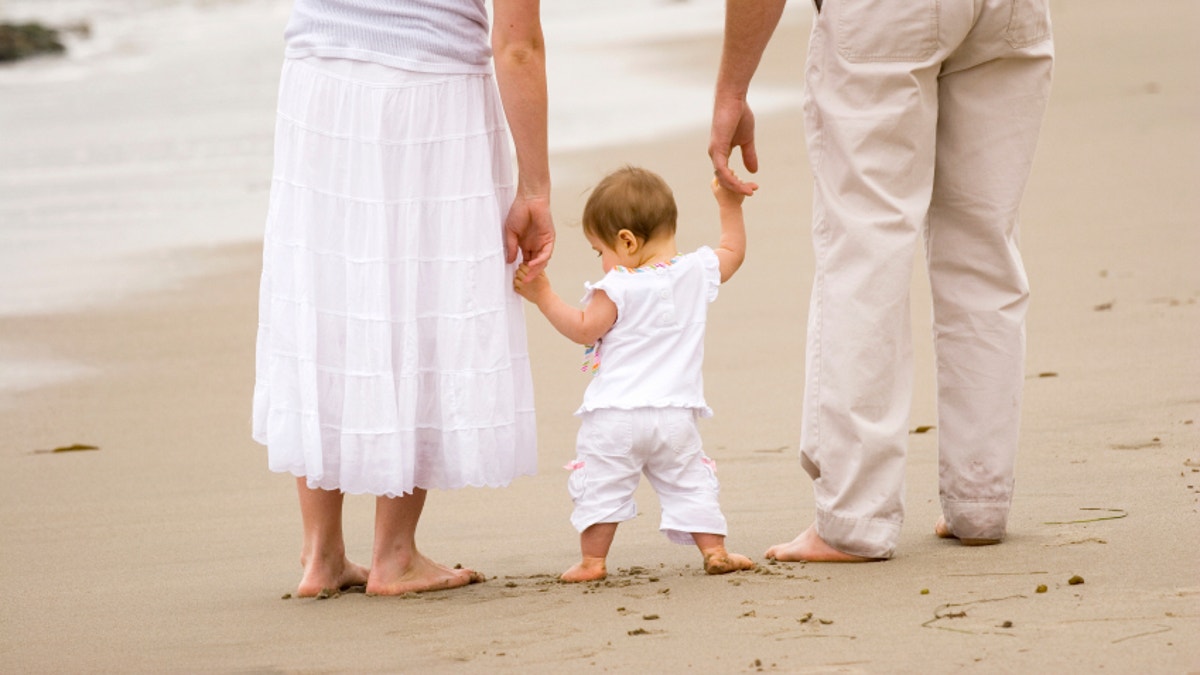
Most people who have their first child after the age of 40 think the best time to have kids is five to 10 years earlier, a small new study suggests.
The study participants maintained that older parenting has more advantages than disadvantages, but when they were asked about the "optimal age for parenting," 80 percent of the women and 70 percent of the men said it was in the 30s, and many of them indicated that it was only their circumstances that kept them from becoming parents then.
The University of California, San Francisco, study was limited to 107 people, most of them white, married and with above-average incomes. The authors said future research should include a more diverse group and should follow up on the older parents once their children reach the teens.
Advantages of being an older parent
Researchers interviewed 46 couples and 15 single women who had used in vitro fertilization to conceive their first child when the woman was 40 or older. People who used IVF were chosen for the study because they were likely at the very end of theirreproductive capabilities, the researchers said. The participants were asked what they thought were the advantages and disadvantages of becoming a parent at this point in their lives.
"A majority of women and men in the study believed that childbearing later in life resulted in advantages for themselves and their families," the researchers wrote.
The chief advantage, according to the participants, was that they were more emotionally prepared for parenting — 72 percent of women and 57 percent of men said this was an advantage.
One father said, "I know that I’m way more self-aware than I was 20 years ago. I feel like I’m in a better position to communicate better with my child and help them more in life, and I understand how to be a supportive, encouraging parent."
A woman said, "I just have more confidence in myself than I did in my 20s, so I don’t get fazed by as much as I might have when I was younger."
Other cited advantages included having more career success and flexibility in their work, greater financial security, and stronger relationships with their partners and families. [Pregnant Women Over 50 'Do Pretty Well' Study Finds]
Seven of the men had older children from previous relationships. They commonly said that as older parents, they had more time available for parenting than they did when they were younger.
The downside
Still, the women tended to say they would have wanted to have children earlier had they met their partner sooner.
"I think if I could have written out the story of my life, I would have met him younger, and I probably would have had children maybe at 35," one woman said.
Most of the participants said they could not have had children earlier because of their circumstances.
Nearly half the women said that the difficulties they had in conceiving, and the need to use IVF, were the primary disadvantages of trying to become a parent at a later age.
In fact, many of the women said that because of their ages, they were advised to "go straight to IVF" when they decided to get pregnant. Most were told at some point during the treatment that their odds were poor. As a result, many said they felt lucky and appreciative to have had a child. Half of them conceived and gave birth after only one cycle of IVF.
Participants also said they believed they would have had more energy for parenting if they were younger. More than a third of the women and a quarter of the men said a disadvantage was a lack of physical energy.
Other disadvantages cited were concerns about being healthy and living long enough to see their children become adults; having a smaller family than they'd wished; and feeling stigmatized for being older parents.
The disadvantages had enough of an effect on the participants' conception and parenting experience that most said the best time for having kids would be five to 10 years earlier in life, the researchers concluded.
"Parenting in their 30s was imagined to reflect a compromise" between the financial and emotional advantages of becoming a parent later and the lack of energy and other drawbacks, they wrote.
Their findings were published online Feb. 14 in the journal Human Reproduction.
